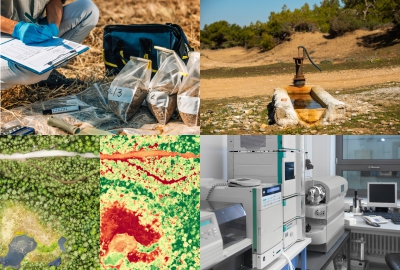Environmental science combines chemistry, biology, geology, and climate science to tackle societal issues related to environmental degradation and developing solutions to avoid and/or mitigate degradation. Our diverse research examines anthropogenic and microbiological processes with important implications for environmental conservation practices and policy making. Our faculty address wide-ranging questions in this interdisciplinary field:

- How are contaminants circulated in natural and anthropogenically altered environments and how do we minimize impacts?
- How can isotopes fingerprint and track anthropogenic metal pollutants?
- How can conservation of wetlands help in mitigating the effects of anthropogenic climate change?
- How can we identify and reduce contaminant emissions and exposures?
- How can we use satellite data and computational models to understand the water cycle behavior and how can we use this knowledge for water resources management?
- What tools can we use to determine sources of and track distribution of groundwater contamination?
- How does vegetation respond to human-induced environmental changes?
- What are the sources and pathways of water and contaminant fluxes in urban watersheds?
| Faculty | Areas of Interest |
|---|---|
| Sarah Ariano | hydrology, biogeosciences, environmental sciences, water resources |
| Charly (Carl-Georg) Bank | Environmental geophysics |
| Joe Desloges | River dynamics, flood hazards, climate change |
| Miriam Diamond | Chemical contaminants, microplastics, human and ecosystem exposure, chemical management and protection |
| Ulrich Wortmann | Marine geology, paleoceanography,carbon and sulfur cycling, geomicrobiology |
| Xiaoyong Xu | Water cycle behaviour, surface-subsurface water interactions, remote sensing, hydrologic modelling, data assimilation |


